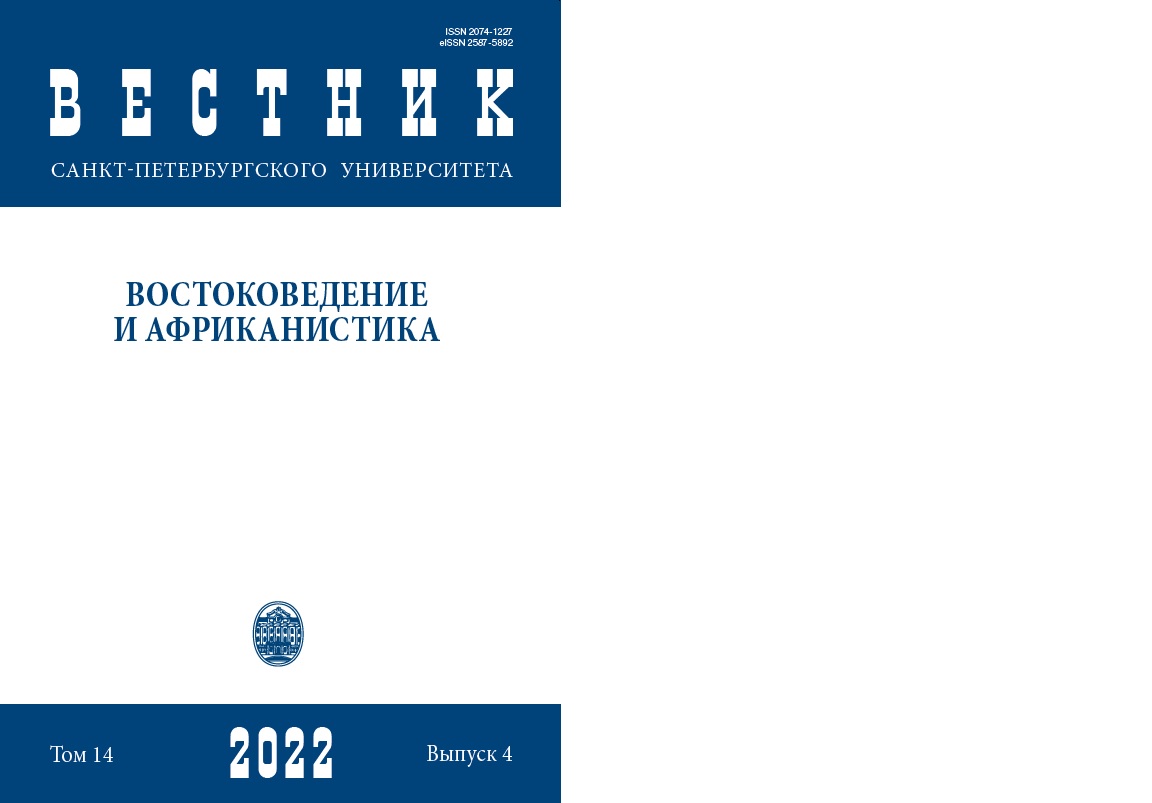On the History of Polish Indology and Russian-Polish Indological Contacts in the Second Part of the 20th — and Start of the 21st Century
DOI:
https://doi.org/10.21638/spbu13.2022.402Abstract
This article covers history of Polish Indology in the second half of the 20th century and early 21st century. The end of World War II, and the independence obtained by India in 1947 are the factors that greatly influenced development of Indology in Poland and Polish-Russian Indological contacts. New centers of Indology in Wroclaw and Poznan developed. New themes
of research appeared. Contacts with Russian colleagues intensified. The author reviews the history of Indology in Wrocław, Warsaw, Krakov and Poznan. In May 1945, Poland obtained
new territories and Wrocław became a leading educational and science hub with many professors from Vilnius and Lvov joining Breslau’s former university staff. For example, S. Stasiak
and Ludwik Skurzak joined the Indology unit at the University of Wrocław. Unfortunately, the Department of Indian Studies at the Jagiellonian University was closed from 1948 to 1973; it
was re-opened in 1973. Despite institutional challenges, Indology in both countries continued to develop, and relations. Tatiana Rutkowskla (Nee Girillovich) from Leningrad University
after post-graduate studies in Leningrad moved to Warsaw and started teaching Hindi. Now four Polish Universities continue long tradition of Indological studies and Russian-Polish Indological contacts there in 1950s.
Keywords:
indology, Russia, Poland, academic contacts, Warsaw, Krakow, Wroclaw, Poznan
Downloads
References
Downloads
Published
How to Cite
Issue
Section
License
Articles of "Vestnik of Saint Petersburg University. Asian and African Studies" are open access distributed under the terms of the License Agreement with Saint Petersburg State University, which permits to the authors unrestricted distribution and self-archiving free of charge.





